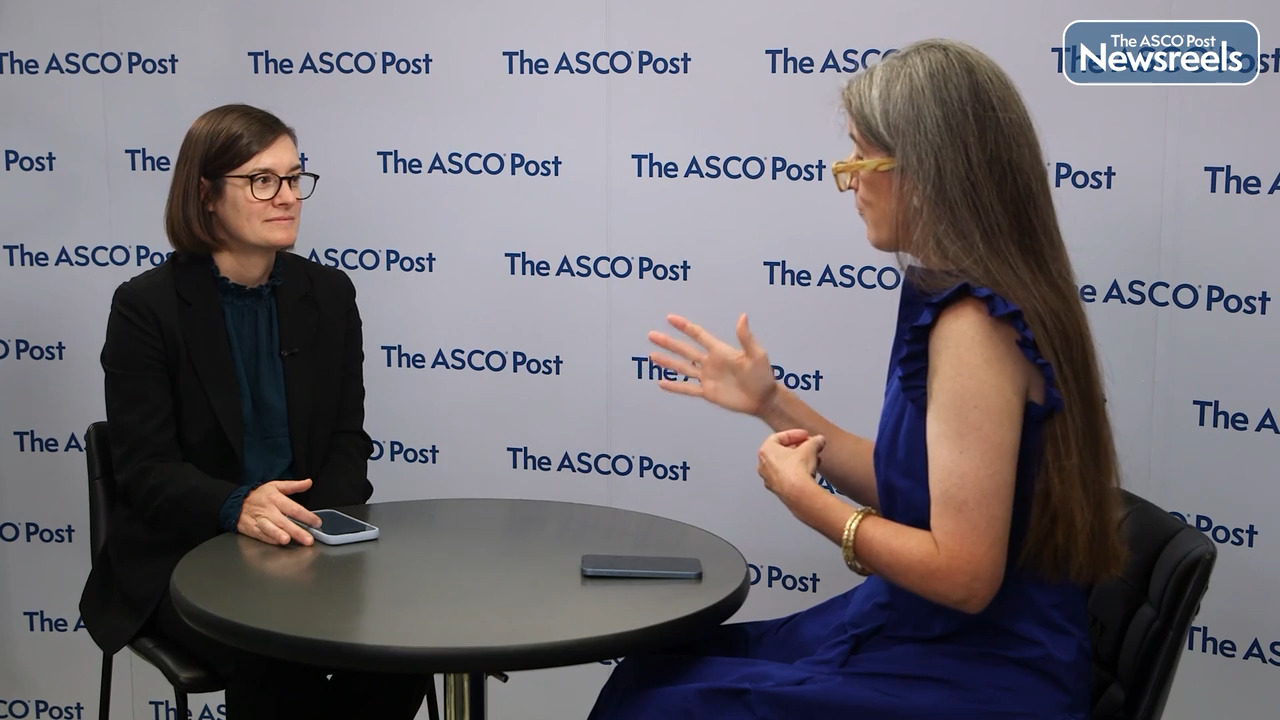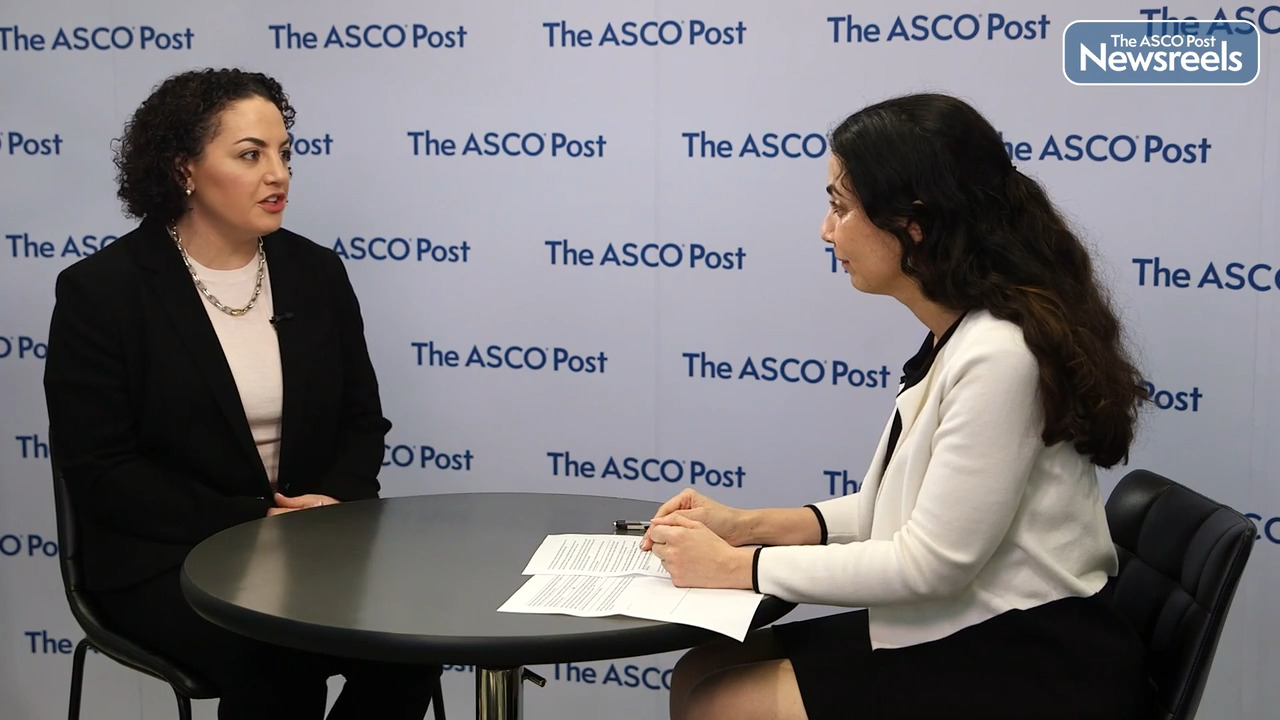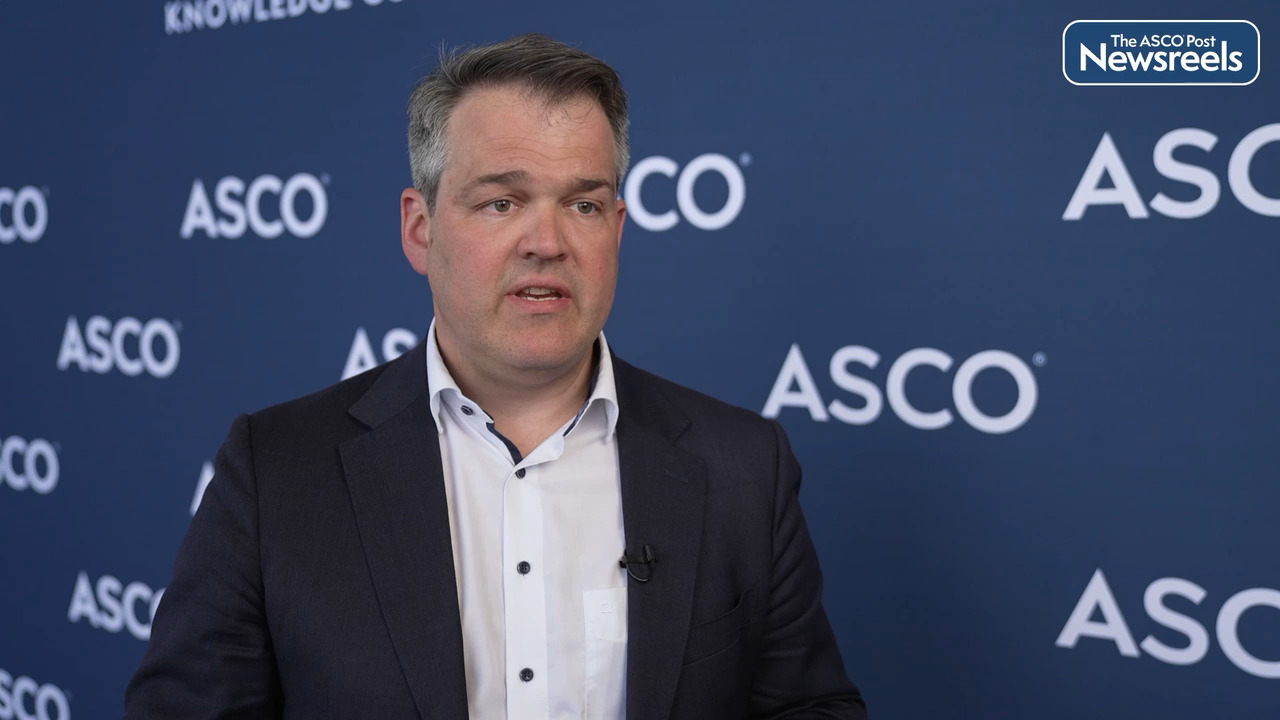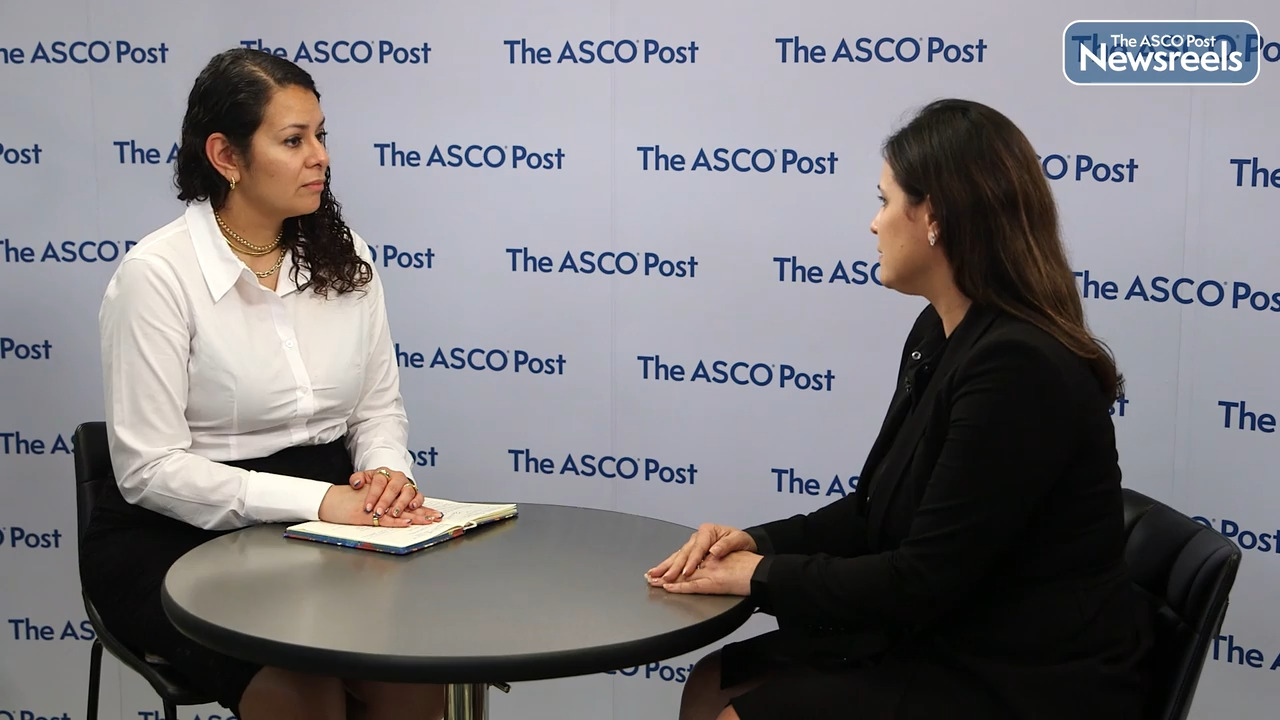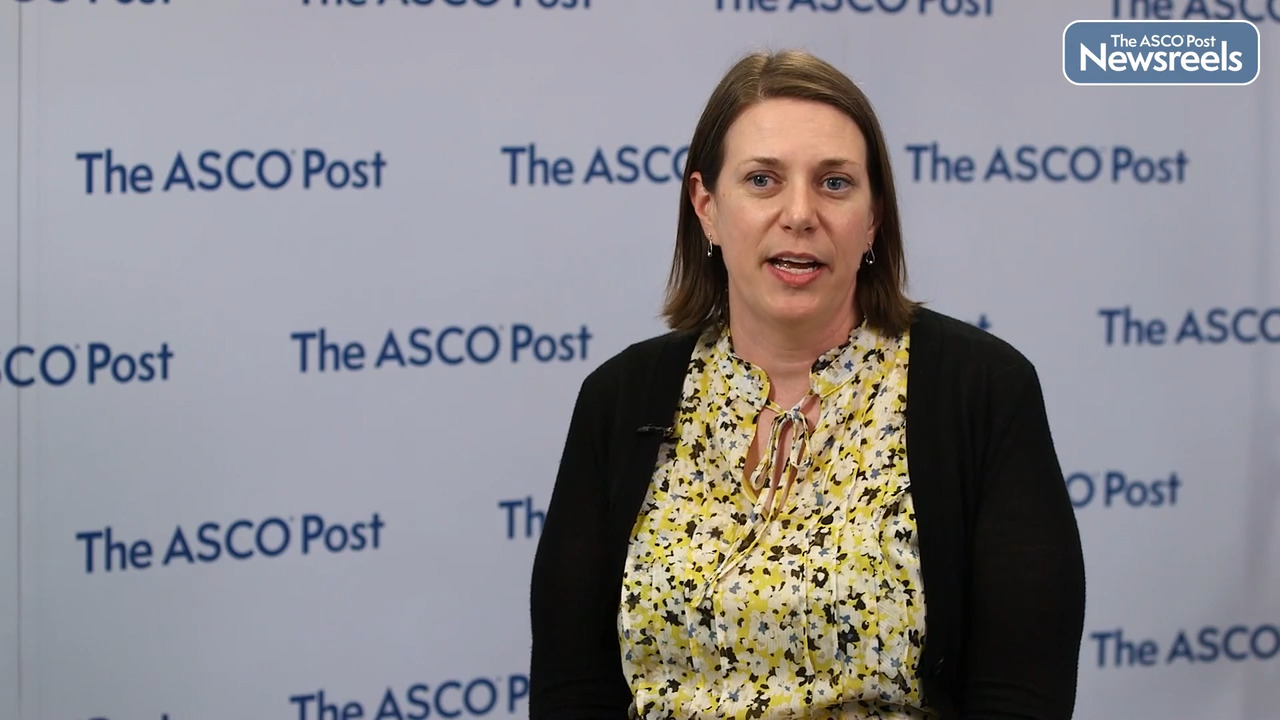Carmen E. Guerra, MD, MSCE, on Diversity, Equity, and Inclusion in Clinical Trials: Expert Commentary
2023 ASCO Annual Meeting
Carmen E. Guerra, MD, MSCE, of the University of Pennsylvania Abramson Cancer Center, discusses three key abstracts presented at ASCO: strategies to increase accrual of underrepresented populations in Alliance NCTN trials, how patient-clinician education can strengthen partnerships and improve diversity in breast and lung cancer trials, and mediators of racial and ethnic inequities in clinical trial participation among U.S. patients with cancer from 2011 to 2022 (Abstracts 6509, 6510, 6511).
The ASCO Post Staff
Bobbie J. Rimel, MD, of Cedars-Sinai Medical Center, and Kathleen N. Moore, MD, of the Stephenson Oklahoma Cancer Center at the University of Oklahoma, discuss phase III results from the MIRASOL trial, which showed that mirvetuximab soravtansine-gynx prolonged overall survival vs investigator’s choice chemotherapy in patients with platinum-resistant ovarian cancer with high folate receptor-alpha expression. The findings suggest a new standard of care for this disease (Abstract LBA5507).
The ASCO Post Staff
Allison Betof Warner, MD, PhD, of Stanford University Medical Center, and Zeynep Eroglu, MD, of H. Lee Moffitt Cancer Center and Research Institute, discusses phase II findings showing that in patients with BRAF-mutant metastatic melanoma, dabrafenib plus trametinib and navitoclax (DTN) was associated with a complete response rate of 20% and an overall response rate of 84%. Additionally, there was a trend toward improved overall survival in patients treated with DTN compared with dabrafenib plus trametinib alone; the difference in overall survival was more pronounced in patients with a smaller tumor burden (Abstract 9511).
The ASCO Post Staff
Sebastian Stintzing, MD, of the Charité Universitätsmedizin Berlin, discusses results from the phase III FIRE-4 study, which showed that liquid biopsy is clinically relevant in verifying mutational status in patients with metastatic colorectal cancer and is efficacious in first-line treatment of FOLFIRI and cetuximab for patients with RAS wild-type disease (Abstract 3507).
The ASCO Post Staff
Narjust Florez, MD, of Dana-Farber Cancer Institute, and Ticiana Leal, MD, of Winship Cancer Institute of Emory University, discuss the use of tumor treating fields therapy, in which electric fields disrupt processes critical for cancer cell viability. Already approved by the FDA to treat glioblastoma and mesothelioma, the treatment has extended overall survival in this phase III study of patients with metastatic non–small cell lung cancer (NSCLC) with progression on or after platinum-based chemotherapy, without exacerbating systemic toxicities (Abstract LBA9005).
The ASCO Post Staff
Jennifer A. Woyach, MD, of The Ohio State University Comprehensive Cancer Center, discusses results of a phase III study showing that progression-free survival with ibrutinib plus obinutuzumab plus venetoclax is not superior to ibrutinib plus obinutuzumab for treatment-naive older patients with chronic lymphocytic leukemia (CLL) in the setting of the COVID-19 pandemic. Long-term follow-up will determine whether there are advantages to obinutuzumab plus venetoclax, with special attention to measurable residual disease and therapy discontinuation (Abstract 7500).
